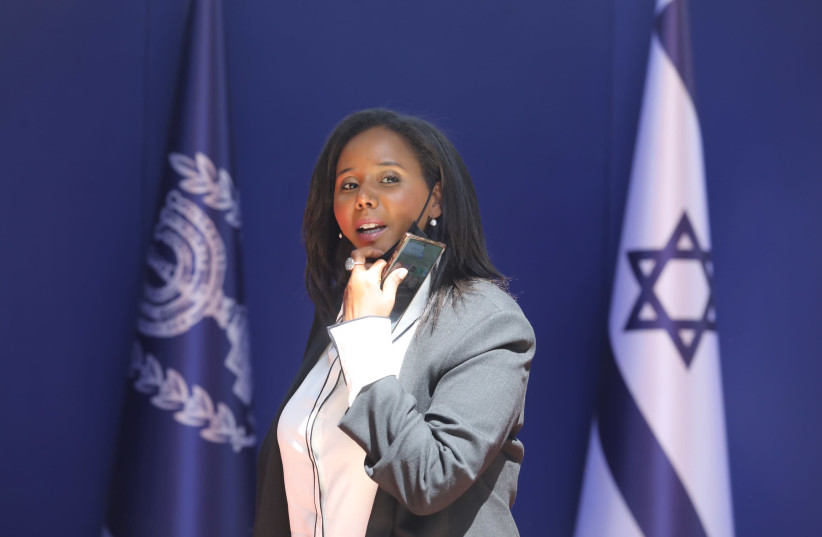According to new figures released this week by the Aliyah and Integration Ministry, the Jewish Agency and Nefesh B’Nefesh, Jewish immigration to Israel surged in 2021, with more than 27,000 new arrivals from across the globe.
The figure represented a 30% increase over the previous year’s 21,820 olim. Of the 27,000, 4,000 came from the United States, a 30% increase over 2020 and the highest number of American olim since 1973. Another 400 came from Canada.
Topping the year’s total were 7,500 olim from Russia, an increase of 10%, followed by 3,000 from Ukraine, and 1,636 from Ethiopia (as part of what has been dubbed Operation Rock of Israel). Other significant sources of aliyah included 900 from Argentina, an increase of 55%; 650 from the United Kingdom, up 22%; 550 from Brazil, 550 from South Africa – an increase of 72% and the largest number since 1994 – and 290 from Mexico, a 55% increase.
Israeli officials were clearly delighted by the aliyah figures.
“Aliyah continues to break records,” declared Aliyah and Integration Minister Pnina Tamano-Shata. “Despite the pandemic and its limitations, aliyah to Israel did not stop, and we’re happy to welcome tens of thousands of olim who chose to make aliyah this year. Olim are an incredible growth engine for the Israeli economy. and are a national, economic and moral powerhouse for the nation.”

Yaakov Hagoel, acting chairman of the Jewish Agency, said “We are thrilled to see a sharp increase, of tens of percentage points, in aliyah from countries such as the US, France, Argentina, the UK, South Africa, Australia, Germany, Italy, Belgium, and more. The growing interest in aliyah continued this year with the Jewish Agency’s Global Aliyah Center, which provides aliyah information throughout the day in six languages, opening almost 32,000 new aliyah files. However, the best is yet to come: we haven’t yet maximized on the potential aliyah.”
Rabbi Yehoshua Fass, co-founder and executive director of Nefesh B’Nefesh, said that “after an incredibly challenging year, we celebrate each and every oleh who made the courageous move and overcame the many difficulties and ever-changing factors over the last year and made aliyah.”
While they are all right to praise the increase in aliyah, we should not rest on our laurels. Israel must do more, must do all it can, to encourage Diaspora Jewry to make aliyah.
According to demographer Prof. Sergio Della Pergola of the Hebrew University of Jerusalem, the number of Jews worldwide stands at approximately 15.2 million, with more than 6.9 million living in Israel and the other 8.3 million in the Diaspora. The largest Jewish populations by country are the US (six million), France (446,000), Canada (393,500), the United Kingdom (292,000), Argentina (175,000), Russia (150,000), Germany (118,000) and Brazil (91,500).
Aliyah officials here cannot be complacent, though, especially when it comes to communities in distress. As Ethiopia again faces political turmoil, it is essential that Israel enable those awaiting aliyah to fly here, despite the pandemic. The cabinet voted on November 21 to approve the immigration of thousands of Ethiopians who have been waiting for years to fly to Israel, many in transit camps. But the government’s new regulations aimed at stemming the spread of the Omicron variant have apparently held up the process.
Rabbi Stewart Weiss, a regular Jerusalem Post columnist, wrote two columns recently urging the government to “bring home 10,000 members of Beta Yisrael waiting anxiously to immigrate to the Jewish state,” as well as the estimated 50,000 Jews living in South Africa. “This is a moment in time for South African Jews to gather up their courage, their vast talents and their families, and join us in our historic, divinely inspired march to redemption,” he wrote.
We echo his appeal to the Israeli government to seize the moment and expedite the immigration of Jews from Ethiopia, South Africa and elsewhere in the Diaspora. Israel has not sent a welcoming message to Diaspora Jewry by closing Ben-Gurion Airport to foreigners. But it can send a clear signal to all Jews abroad that its gates are always open to those who want to make aliyah.
